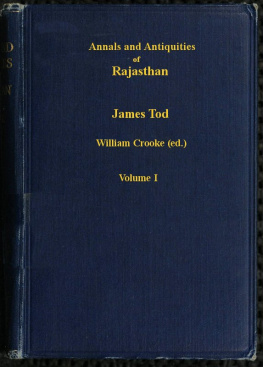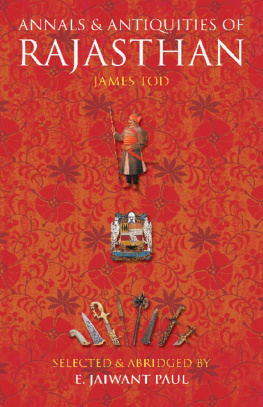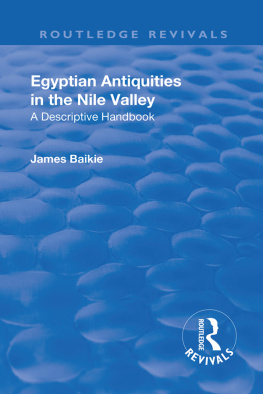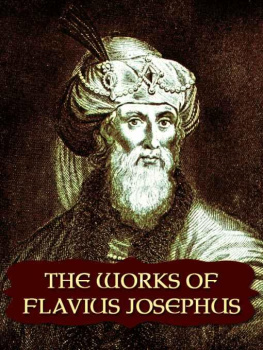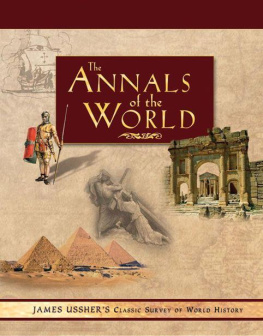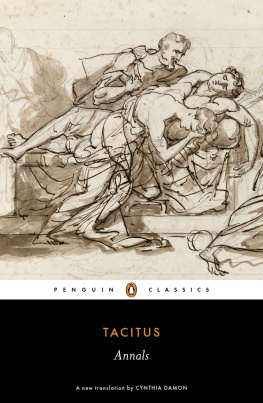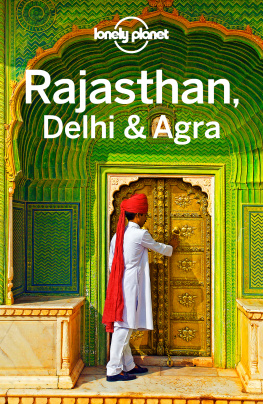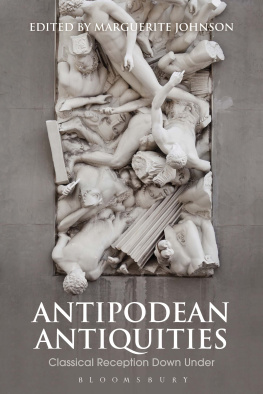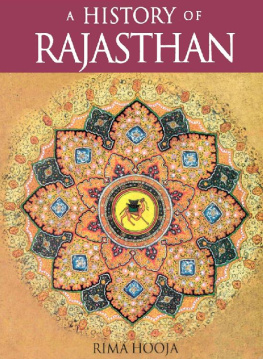Transcribers Note:
The text is annotated with numerous footnotes, which were numbered sequentially on each page. On occasion, a footnote itself is annotated by a note, using an asterisk as the reference. This distinction is followed here, with those notes on notes are given alphabetic sequence (A, B, etc.). Since there are over 1500 notes in this volume, they have been gathered at each chapters end, and resequenced for each chapter.
The notes are a combination of those of the author, and of the editor of this edition. The latter are enclosed in square brackets.
Finally, the pagination of the original edition, published in the 1820s, is preserved for ease of reference by including those page numbers in the text, also enclosed in square brackets.
There are a number of references to a map, sometimes referred to as appearing in Volume I. In this edition, the MAPMAP appears at the end of Volume III.
Crookes plan for the renovation of the Tods original text, including a discussion of the transliteration of word other than English, is given in detail in the .
Minor errors, attributable to the printer, have been corrected. Given the history of the text, it was thought best to leave all orthography as printed.
Please see the transcribers at the end of this text for details regarding the handling of any textual issues encountered during its preparation.
Any corrections are indicated using an underline highlight. Placing the cursor over the correction will produce the original text in a small popup.
Any corrections are indicated as hyperlinks, which will navigate the reader to the corresponding entry in the corrections table in the note at the end of the text.
ANNALS AND ANTIQUITIES
OF RAJASTHAN
COLONEL JAMES TOD.
(From the bust by Vo. Livi, 1837. By permission of Lt.-Col. E. W.
Blunt-Mackenzie, R.A.).
Frontispiece.
ANNALS AND ANTIQUITIES
OF
RAJASTHAN
OR THE CENTRAL AND WESTERN
RAJPUT STATES OF INDIA
BY
Lieut.-Col. JAMES TOD
LATE POLITICAL AGENT TO THE WESTERN RAJPUT STATES
EDITED WITH AN INTRODUCTION AND NOTES BY
WILLIAM CROOKE, C.I.E.
HON. D.SC. OXON., B.A., F.R.A.I.
LATE OF THE INDIAN CIVIL SERVICE
IN THREE VOLUMES
VOL. I
HUMPHREY MILFORD
OXFORD UNIVERSITY PRESS
LONDON EDINBURGH GLASGOW NEW YORK
TORONTO MELBOURNE BOMBAY
1920
[Original Dedication of the First Volume.]
TO
HIS MOST GRACIOUS MAJESTY
GEORGE THE FOURTH
Sire ,
The gracious permission accorded me, to lay at the foot of the Throne the fruit of my labours, allows me to propitiate Your Majestys consideration towards the object of this work, the prosecution of which I have made a paramount duty.
The Rajput princes, happily rescued, by the triumph of the British arms, from the yoke of lawless oppression, are now the most remote tributaries to Your Majestys extensive empire; and their admirer and annalist may, perhaps, be permitted to hope that the sighs of this ancient and interesting race for the restoration of their former independence, which it would suit our wisest policy to grant, may be deemed not undeserving Your Majestys regard.
With entire loyalty and devotion, I subscribe myself,
Your Majestys
Most faithful subject and servant,
JAMES TOD.
Bird Hurst, Croydon ,
June 20, 1829.
[Original Dedication of the Second Volume.]
TO
HIS MOST GRACIOUS MAJESTY
WILLIAM THE FOURTH
Sire ,
Your Majesty has graciously sanctioned the presentation of the Second Volume of the Annals of Rajputana to the Public under the auspices of Your Majestys name.
In completing this work, it has been my endeavour to draw a faithful picture of States, the ruling principle of which is the paternity of the Sovereign. That this patriarchal form is the best suited to the genius of the people may be presumed from its durability, which war, famine, and anarchy have failed to destroy. The throne has always been the watchword and rallying-point of the Rajputs. My prayer is, that it may continue so, and that neither the love of conquest, nor false views of policy, may tempt us to subvert the independence of these States, some of which have braved the storms of more than ten centuries.
It will not, I trust, be deemed presumptuous in the Annalist of these gallant and long-oppressed races thus to solicit for them a full measure of Your Majestys gracious patronage; in return for which, the Rajputs, making Your Majestys enemies their own, would glory in assuming the saffron robe, emblematic of death or victory, under the banner of that chivalry of which Your Majesty is the head.
That Your Majestys throne may ever be surrounded by chiefs who will act up to the principles of fealty maintained at all hazards by the Rajput, is the heartfelt aspiration of,
Sire ,
Your Majestys
Devoted subject and servant,
JAMES TOD.
PREFACE
No one can undertake with a light heart the preparation of a new edition of Colonel Tods great work, The Annals and Antiquities of Rajasthan. But the leading part which the Rjputs have taken in the Great War, the summoning of one of their princes to a seat at the Imperial Conference, the certainty that as the result of the present cataclysm they will be entitled to a larger share in the administration of India, have contributed to the desire that this classical account of their history and sociology should be presented in a shape adapted to the use of the modern scholar and student of Indian history and antiquities.
In the Introduction which follows I have endeavoured to estimate the merits and defects of Colonel Tods work. Here it is necessary only to state that though the book has been several times reprinted in India and once in this country, the obvious difficulties of such an undertaking have hitherto prevented any writer better qualified than myself from attempting to prepare an annotated edition. Irrespectively of the fact that this work was published a century ago, when the study of the history, antiquities, sociology, and geography of India had only recently started, the Authors method led him to formulate theories on a wide range of subjects not directly connected with the Rjputs. In the light of our present knowledge some of these speculations have become obsolete, and it might have been possible, without impairing the value of the work as a Chronicle of the Rjputs, to have discarded from the text and notes much which no longer possesses value. But the work is a classic, and it deserves to be treated as such, and it was decided that any mutilation of the original text and notes would be inconsistent with the object of this series of reprints of classical works on Indian subjects. The only alternative course was to correct in notes, clearly distinguished from those of the Author, such facts and theories as are no longer accepted by scholars.
It is needless to say that during the last century much advance has been made in our knowledge of Indian history, antiquities, philology, and sociology. We are now in a position to use improved translations of many authorities which were quoted by the Author from inadequate or incorrect versions. The translation of Ferishtas History by A. Dow and Jonathan Scott has been superseded by that of General J. Briggs, that of the n-i-Akbar of F. Gladwin by the version by Professor H. Blochmann and Colonel H. S. Jarrett. For the Memoirs of Jahngr, the Author relied on the imperfect version by Major David Price, which has been replaced by a new translation of the text in its more complete form by Messrs. A. Rogers and H. Beveridge. For the Laws of Manu we have the translation by Dr. G. Bhler. The passages in classical literature relating to India have been collected, translated, and annotated by the late Mr. J. W. McCrindle. Much information not available for the Authors use has been provided by The History of India as told by its own Historians, by Sir H. M. Elliot and Professor J. Dowson, and by Mr. W. Irvines translation, with elaborate notes, of N. Manuccis Storia do Magor . Among original works useful for the present edition the following may be mentioned: J. Grant Duffs History of the Mahrattas; Dr. Vincent A. Smiths Early History of India, History of Fine Art in India and Ceylon, Asoka, the Buddhist Emperor of India, and Akbar, the Great Mogul; Professor Jadunath Sarkars History of Aurangzib, of which only three volumes have been published; Mr. W. Irvines Army of the Indian Moghuls; Sir W. Lee-Warners Protected Princes of India.



